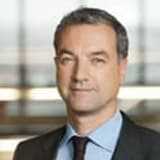Switzerland is considered innovative. It also registers a particularly large number of patents with the authorities – in relative terms, even more than large countries such as Germany or France. This is confirmed by the evaluation of the European Patent Office from last year, which is now available. The spokesman for the patent office, Rainer Osterwalder, explains why Switzerland is at the top internationally and what that means for the country.
SRF News: How did Switzerland do in terms of patent applications this time?
Rainer Osterwalder: Last year, Switzerland registered more than 8,400 patents with the European Patent Office, more than ever before and four percent more than in the previous year. Switzerland is in an excellent position, ranking seventh among all applicant countries and third in Europe after Germany and France. In addition, there is a large gap in front of other countries such as Great Britain or the Netherlands.
In relative terms, if you take the number of patent applications per capita, Switzerland is number one. How relevant do you think that is?
This number is an indicator of the innovation intensity in Switzerland and is therefore very relevant. It shows that Switzerland is planning for the long term when it comes to technical innovations. Because patents always point to a long-term interest, to a long-term development of the company, which definitely plans for the future and not just for the moment.
Switzerland plans for the long term when it comes to technical innovations.
Many actors of different sizes are involved in the innovation process. It is a good mix of large international companies, small innovative companies, start-ups, but also very patent-active universities and public research institutions. And that is crucial for this high density of patents.
Most patents come from the medical technology sector. Do the big pharmaceutical companies also belong there?
It’s about a lot. First and foremost, pure medical technology companies are meant. On the other hand, there are of course certain applications from classic pharmaceutical companies that are definitely classified in this area. I think it’s good if you look at all this in a broader area of life sciences. In any case, Swiss companies are extremely well positioned in these fields.
However, when it comes to measurement technology, which also includes watches, the situation is different. It means they are losing importance. What’s behind it?
This is a statistical term and in no way means that measurement technology is insignificant for Switzerland as a technology or that Switzerland is losing importance in the development of this technology. On the contrary: The Swatch company, for example, is the industry leader in the technology fields at the European Patent Office. She has moved up from 17th to first place.
Switzerland is very well positioned in the field of measurement technology.
These are statistical fluctuations, which very often stem from the fact that the companies have their own strategies when filing patents. One year it’s more, the other year it’s less. It is therefore particularly important to look at the long-term technological development. And Switzerland is very well positioned in the field of measurement technology.
The conversation was conducted by Eveline Kobler.
